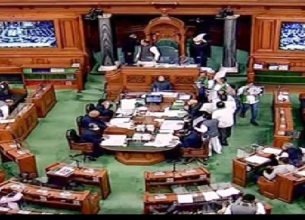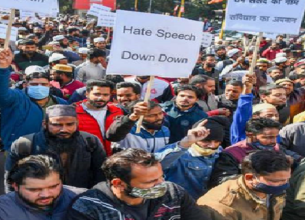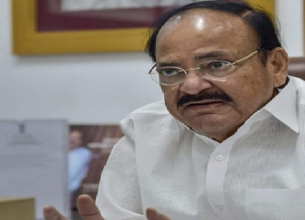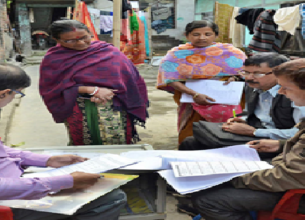CANCELLATION OF TELANGANA MLA’S CITIZENSHIP
25, Nov 2019

Prelims level : Citizenship
Mains level : GS-II Indian Constitution- historical underpinnings, evolution, features, amendments, significant provisions and basic structure.
Why in News?
- The Ministry of Home Affairs (MHA) on Wednesday cancelled the citizenship of TRS MLA from Vemulawada in north Telangana Chennamaneni Ramesh.
What is the Issue?
- Ramesh, who had been living in Germany since 1993, applied for Indian citizenship on March 31, 2008 and was granted the same on February 4, 2009.
- On June 15, 2009, Congress leader from Karimnagar Adi Srinivas filed a revision application, raising objection to the grant of citizenship to Ramesh.
- Srinivas pointed out that Ramesh had retained his German citizenship, and had travelled to Germany in the year preceding the date of his application for Indian citizenship, which was in violation of The Citizenship Act, 1955.
- Based on this, the MHA formed a committee, which investigated the matter for nine years before submitting in its report in March 2017 that Ramesh had indeed, obtained citizenship fraudulently.
- The MHA cancelled Ramesh’s citizenship in August that year.
Action of the MHA:
- In an order served to Ramesh on November 20, the MHA has said that in his application for citizenship filed on March 31, 2008, he did not disclose that he had not lived in India for 12 months before the date of the application, even though he had made multiple trips to Germany during this period.
- This was in violation of The Citizenship Act, 1955, and the Rules under it.
- “Thus he obtained registration of citizenship under section 5(1)(f) by means of fraud, false representation and concealment of facts and his action attracts provisions of section 10(2) of the Act.
- This makes him liable to be deprived of his Indian citizenship,” the MHA order said.
What does Citizenship Act, 1955 say?
- These sections deal with grant of citizenship and the authority of the government to cancel the same.
- According to Section 5(1)(f), “the Central Government may, on an application made in this behalf, register as a citizen of India any person if a person of full age and capacity who, or either of his parents, was earlier citizen of independent India, and has been residing in India for one year immediately before making an application for registration.”
- Section 10(2) says: “Subject to the provisions of this section, the Central Government may, by order, deprive any such citizen of Indian citizenship, if it is satisfied that the registration or certificate of naturalization was obtained by means of fraud, false representation or the concealment of any material fact.”
- The law, however, also provides for checks to ensure that citizenship is not cancelled arbitrarily. Section 10(3) of the Act says, “The Central Government shall not deprive a person of citizenship under this section unless it is satisfied that it is not conducive to the public good that person should continue to be a citizen of India.”
Counter Arguments given by the MLA:
- At the time of application, the law did not specifically require him to “continuously” stay in India for 12 months prior to the date of application.
- He has also said that since he was a German citizen prior to getting Indian citizenship, he did not consider going to Germany a trip “abroad”, and therefore maintained that he had not made any trips abroad.
- He has also argued that Srinivas’s revision petition was time barred — the law requires the objection to be raised within 30 days and, in case the government allows it beyond that period, it must be satisfied that the petitioner was prevented for making the application in time.
- He said: “Dr Ramesh Chennamaneni is a sitting MLA and does not have any criminal backgrounds. Hence section 10(3) of the Act is not satisfied.
- He was elected 4 times by the people of his constituency, being satisfied by his performance and development activity being carried out by him.
- He has not involved in terrorism, espionage, serious organized crime, war crime or unacceptable behaviour. On the contrary, he has been doing lot of public good.”
Options left:
- Ramesh can go back to the High Court and challenge the decision. Thereafter, he can go to the Supreme Court.
- However, unless a stay order is granted on the MHA’s decision, he is sure to lose his membership of the Telangana Assembly.
- In case he does not get relief from the court, he will have the option of going through the whole process again; following which it would be the government’s discretion to grant him citizenship, if he satisfies all conditions.












